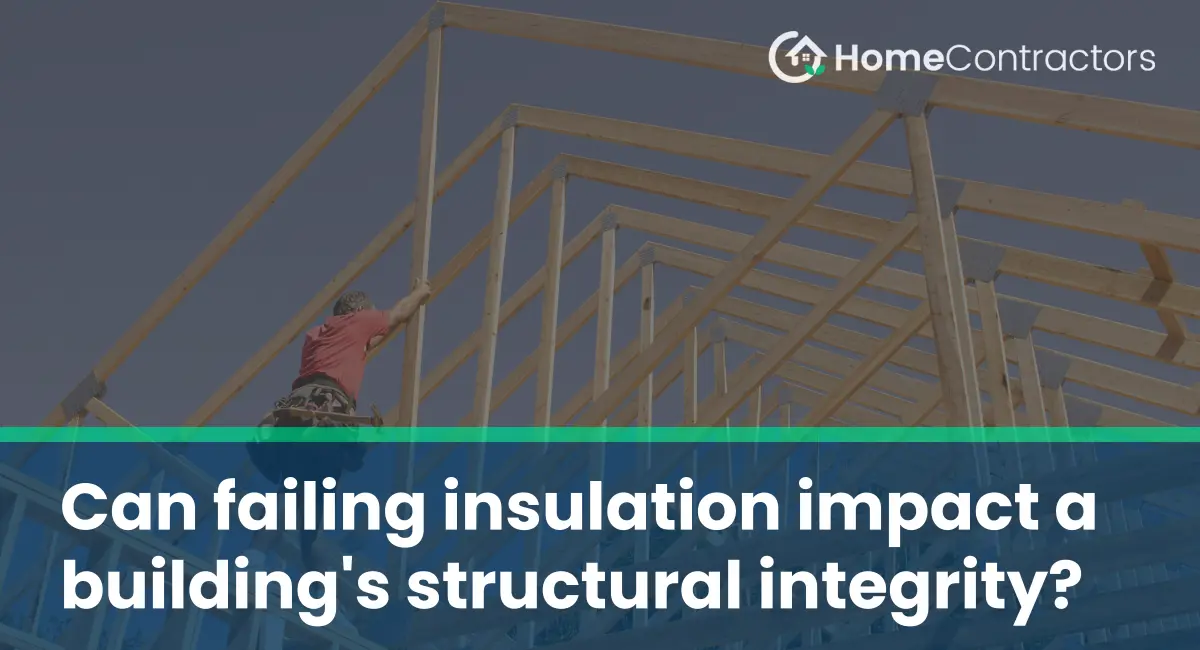Insulation is a critical component of any building, providing thermal resistance and helping to maintain a comfortable indoor environment. However, over time, insulation can deteriorate, sag, or become damaged, leading to concerns about its impact on a building’s structural integrity. In this article, we will explore the potential consequences of failing insulation and discuss the importance of regular maintenance and inspection.
Understanding Insulation
Insulation plays a vital role in buildings by reducing heat transfer between the interior and exterior environment. It helps in maintaining a stable temperature, reducing energy consumption, and improving comfort levels for occupants. Insulation materials such as fiberglass, cellulose, foam, or mineral wool are commonly used to create thermal barriers within walls, ceilings, floors, and roofs.
The Effects of Failing Insulation on Structural Integrity
1. Moisture and Mold Growth
Failing insulation can create an environment where moisture can penetrate the building envelope. Moisture can seep in through cracks, gaps, or sagging insulation, leading to the development of mold and mildew. Mold growth can compromise the structural integrity of the building as it weakens the materials it grows on. Additionally, moisture trapped within insulation can accelerate the deterioration of surrounding structural components, such as wood or metal.
2. Increased Energy Consumption
As insulation begins to fail, its thermal resistance properties diminish, resulting in increased heat loss or gain. This means that the HVAC systems have to work harder to maintain a comfortable indoor temperature, leading to higher energy consumption. The increased load on the HVAC system can also accelerate its wear and tear, leading to reduced efficiency and potential breakdowns over time.
3. Structural Damage Due to Temperature Extremes
Failing insulation can result in temperature fluctuations within the building. During hot summer months, inadequate insulation allows heat to penetrate the building, leading to increased cooling demand. If the thermal stress is severe and prolonged, it can cause materials such as concrete, masonry, or wood to expand and contract, potentially resulting in cracking, warping, or even structural failure.
4. Fire Safety Concerns
Insulation materials are an important factor in fire safety, as they can slow down the spread of flames and reduce the risks associated with fire accidents. Failing insulation can compromise this fire resistance property, allowing flames to spread more quickly. This not only poses significant safety risks to occupants but can also cause extensive damage to the structure itself.
Preventative Measures and Inspections
Regular maintenance and inspections are essential to identify failing insulation and prevent potential structural issues. Here are some important steps to take:
- Visual Inspections: Regularly examine the insulation for sagging, water stains, discoloration, or visible damage. Pay particular attention to areas where moisture is more likely to accumulate, such as basements, roofs, or areas prone to leaks.
- Moisture Control: Implement moisture control strategies to minimize the risk of moisture infiltration. This can include proper waterproofing, addressing any leaks promptly, and ensuring adequate ventilation to reduce condensation.
- Energy Audits: Conduct energy audits to assess the building’s overall energy efficiency. This can help identify areas of poor insulation, allowing for remediation before significant damage occurs.
- Professional Inspections: Engage a professional inspection team to conduct a comprehensive evaluation of the building’s insulation system. They can use specialized equipment and techniques to identify hidden insulation failures and suggest appropriate solutions.
Failing insulation can indeed have a significant impact on a building’s structural integrity. From increased energy consumption to moisture-related damage, and even fire safety concerns, the consequences of failing insulation should not be underestimated. Regular inspections, timely maintenance, and proper moisture control strategies are paramount to maximize the lifespan of insulation and protect the overall integrity of the building. By being proactive and addressing failing insulation promptly, building owners can ensure a safe, comfortable, and energy-efficient environment for occupants.
